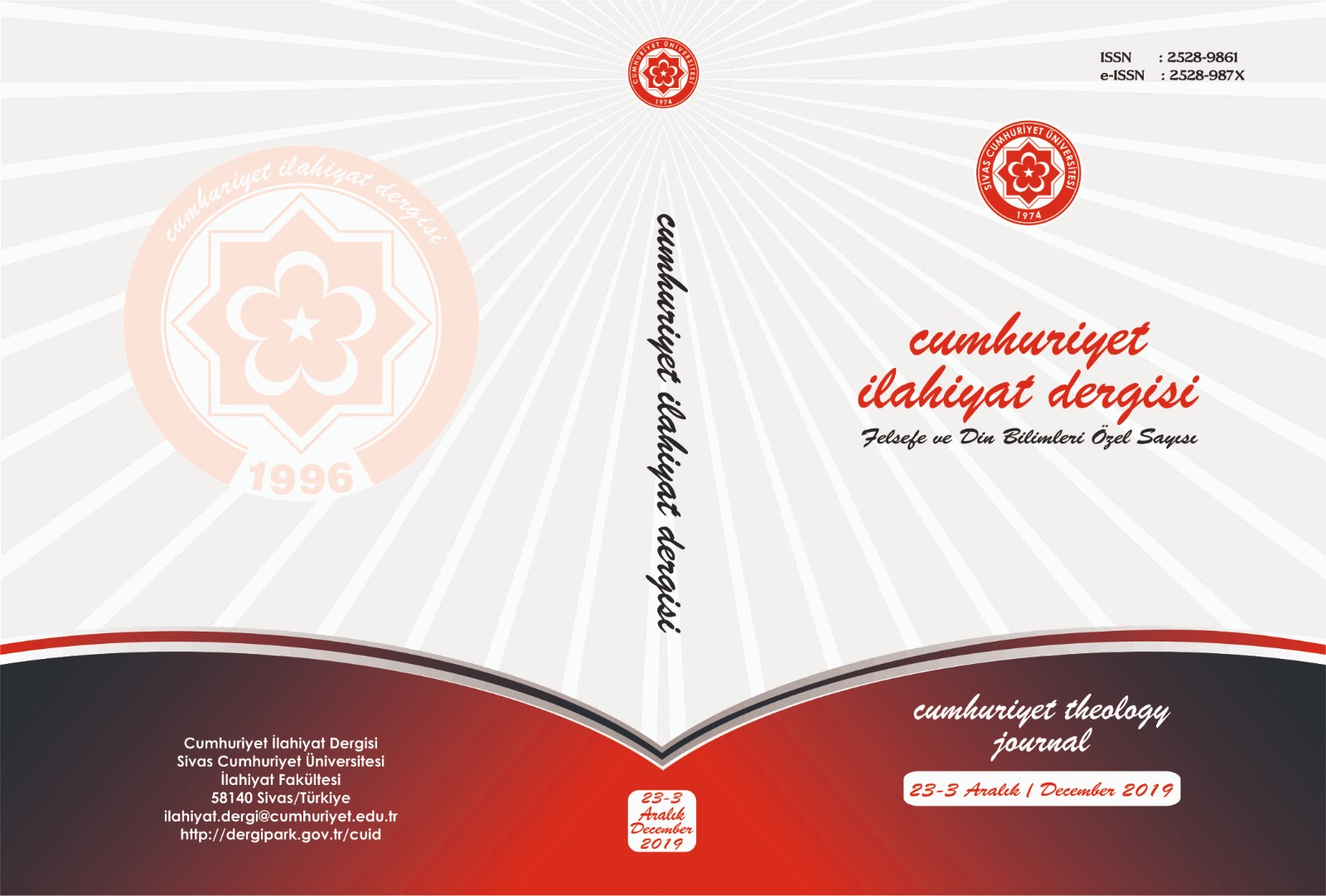Dindarlık Öznel İyi Oluşu Etkiler Mi? Hemodiyaliz (HD) Hastaları Üzerinde Kesitsel Bir Çalışma
Does Religiosity Affect Subjective Well-Being? A Cross-Sectional Study on Hemodialysis (HD) Patients
Author(s): Nevzat GencerSubject(s): Psychology, Theology and Religion
Published by: Cumhuriyet Üniversitesi İlahyat Fakültesi
Keywords: Psychology of Religion; Hemodialysis; Religiosity; Happiness; Subjective Well-Being; SWB; Religious Coping; Life Satisfaction;
Summary/Abstract: The aim of this study, which is a field research, is to determine the level of religiosity and subjective well-being (SWB) of patients with chronic renal failure who are receiving hemodialysis treatment with a descriptive approach and by using socio-psychological methods and to try to determine the relationship between their religiosity and subjective well-being. The sample of the study consists of 205 individuals who were determined by stratified random sampling method from the patients treated in Turkish Ministry of Health, Hitit University Çorum Erol Olçok Training and Research Hospital and Çorum District Dialysis Units. 54.1% (n=111) of the participants are males and 45.9% (n=94) are females. Data was collected via a “Religiosity Inventory”, developed by Kula, and “Subjective Well-Being Scale”, developed by Dost, to determine participants’ religiosity and subjective well-being as well as a personal information form to determine demographic characteristics. Statistical analysis of the data showed significant differences and relationships between demographic variables, religiosity, and subjective well-being. Moreover, a statistically significant relationship between the levels of religiousness and subjective well-being of the participants was found and that religiosity accounts for 31.9% of subjective well-being variance. The findings of the study show that the major hypotheses and sub-hypotheses have statistically been validated and that religiosity is a significant and important predictor of subjective well-being.
Journal: Cumhuriyet İlahiyat Dergisi
- Issue Year: 23/2019
- Issue No: 3
- Page Range: 1419-1444
- Page Count: 26
- Language: Turkish

